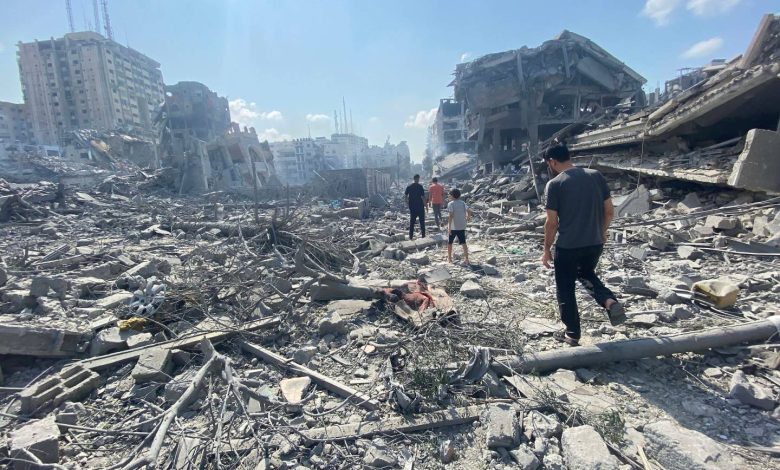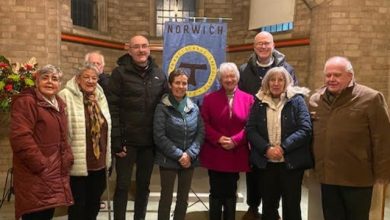Bishop of Norwich prays Gaza ceasefire will bring immediate relief and comfort

Bishops’ Call for Peace: A Hopeful Response to the Gaza Deal
In a moment of cautious optimism amidst prolonged tragedy, four prominent Church of England bishops have welcomed the recently announced Gaza peace deal. Bishop Christopher Chessun of Southwark, the Church’s lead bishop for the Middle East, joined by the Bishops of Chelmsford, Gloucester, and Norwich, have issued a statement that balances hope for immediate relief with clear-eyed recognition of the difficult path ahead. Their collective voice represents not just ecclesiastical authority but a deeply human response to suffering that has touched countless lives across the Holy Land and resonated throughout the global community.
“We hope and pray that today’s agreement will bring immediate relief and comfort to those imprisoned and held hostage, to those who are hungry and homeless and to those fearful for their lives and the lives of their loved ones,” the bishops stated. Their words acknowledge the human toll of the conflict—families separated, communities devastated, and basic human needs denied. The bishops recognize that while a ceasefire marks an essential beginning, lasting peace demands profound transformation. “A credible peace must start with a ceasefire, but it will not last without a fundamental shift in the attitudes and behaviors that, for too long, have maintained Israel’s occupation of Palestinian territory and thwarted Palestinian self-determination and statehood,” they observed, adding that “settler violence in the West Bank must cease and the settlement-expansion program must be reversed.” This statement reflects their understanding that genuine peace requires addressing root causes rather than merely suspending active hostilities.
The bishops’ call extends beyond the immediate parties to the conflict, placing responsibility on the international community—including their own British government—to facilitate meaningful change. They envision a comprehensive approach where Palestinian factions, including Hamas, commit to “decommissioning their arms and dismantling their military capabilities,” while Israel makes corresponding commitments “to end the occupation in accordance with the International Court of Justice’s ruling of July 19, 2024.” This balanced perspective acknowledges obligations on all sides while emphasizing the importance of international law as a framework for justice. The bishops are unequivocal that accountability must follow where laws have been broken, stating that “to do otherwise would be to undermine respect for the rules of war and to encourage a culture of impunity in future conflicts.” Their declaration that the events in Gaza “must never be allowed to happen again, anywhere” alongside their condemnation of the October 7, 2023 attacks on Israel reflects a consistent ethical stance that transcends political alignments.
Looking toward the future, the bishops reaffirm their commitment to “a two-state solution that provides for a safe and secure Israel alongside a viable and sovereign Palestinian state.” This vision represents not merely a political arrangement but a framework for human dignity and mutual recognition. The bishops’ pledge to “continue to stand in solidarity with the Churches of the Holy Land” demonstrates their understanding that religious communities have essential roles in peacebuilding. Their concern that the “hopes and anxieties” of Palestinian Christians “not be ignored in the weeks and months ahead” highlights the often-overlooked presence of diverse faith communities within the broader conflict narrative and recognizes the particular vulnerabilities of minority groups.
Perhaps most significantly, the bishops emphasize that sustainable peace cannot be imposed from outside but must be “built and owned by the affected communities themselves.” This principle honors the agency and dignity of those most directly impacted by the conflict while acknowledging the distinctive contribution that “Palestinian Christians have an important part to play in that process.” By affirming their support for local peacemakers, the bishops model a form of solidarity that respects rather than replaces indigenous leadership. The statement, signed by Bishops Guli Francis-Dehqani of Chelmsford, Rachel Treweek of Gloucester, Graham Usher of Norwich, and Christopher Chessun of Southwark, represents a collective wisdom shaped by their ongoing engagement with the region.
The bishops’ response to the Gaza peace deal ultimately offers a template for how religious leaders might engage with complex geopolitical realities without sacrificing moral clarity or compassionate concern. Their statement balances immediate humanitarian priorities with long-term justice considerations, acknowledges painful histories without being trapped by them, and envisions a future predicated on mutual recognition rather than domination. In a conflict often characterized by hardened positions and dehumanizing rhetoric, these church leaders have offered a different way—one that begins with seeing the human beings behind the headlines and insisting that their dignity and security matter equally. As the fragile peace process unfolds, their commitment to supporting grassroots peacemakers and ensuring that diverse voices are heard represents not just religious witness but a practical contribution to sustainable resolution.









1mpcbv
oa7vei
t74tf9